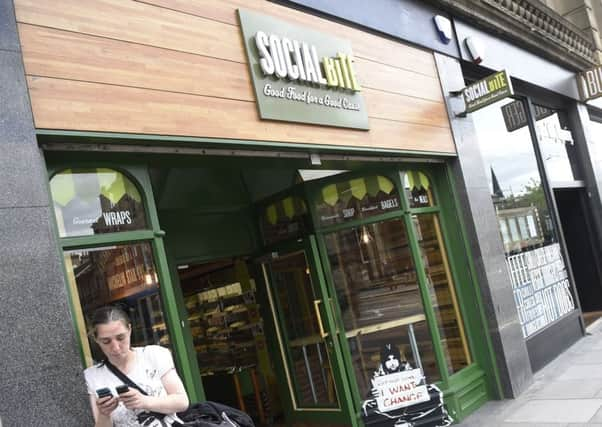Scotland sees jump in social enterprises as sector booms
This article contains affiliate links. We may earn a small commission on items purchased through this article, but that does not affect our editorial judgement.


There are some 5,600 businesses now running as social enterprises north of the Border, up from 5,199 previously, according to the newly published Social Enterprise in Scotland: Census 2017 report.
Advertisement
Hide AdAdvertisement
Hide AdCollectively, they make an estimated £2 billion contribution to the economy – while there are 81,357 full-time equivalent employees working in Scottish social enterprises.
The study also found that 64 per cent of Scotland’s social enterprises are led by women and just over a third are located in rural parts of the country.
However, half of those ventures questioned said they had been negatively affected by the economic climate over the last 12 months.
The research was led in partnership with a range of sector support organisations alongside the Scottish Government.
Gerry Higgins, of Community Enterprise in Scotland (CEIS), speaking on behalf of the steering group, said: “The data in the report contain a broadly positive picture, with social enterprises making a significant economic contribution and demonstrating resilience in the face of challenges for the economy and public services.
“The 2017 census also shows that some parts of the sector remain fragile or in need of continuing support to fully realise their potential.
“As public expectations of business and the need for an inclusive economy grow, we need to continue investing in Scotland’s world-class support for social enterprise.”
Advertisement
Hide AdAdvertisement
Hide AdSocial enterprises aim to generate a profit like any other business, but invest 100 per cent of it in their social purpose. Well-known examples include The Big Issue, Social Bite, Capital Credit Union and the Homeless World Cup.
The census also found that the average differential between the highest and lowest paid worker in a social enterprise was just 1:2.5.
Angela Constance, Scottish Government secretary for communities, social security and equalities, said: “I have no doubt of the contribution that social enterprises make to our country. They are fantastic examples of what we want to achieve in a fairer Scotland.
“The Government will continue to support social enterprises through our ten-year strategy, investing millions of pounds into the sector. I am proud of all we have achieved, working collaboratively.”